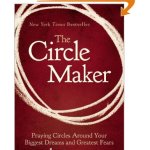Genius grows with experience
As the John Llewellyn Rhys prize for young writers reaches 65, Derwent May argues that the best writing comes with the seasoning of old age
Thomas Hardy wrote some good lyrical poems when he was young, but the most moving poems of all the thousands he produced were a little batch that appeared in his Satires of Circumstance when he was 72. Suddenly, it seems, memories of the youthful sweetheart who became his first wife welled up in him, with an overpowering surge of happiness and grief. And the facility with words that he had mastered over the years, almost to the point of banality, came to his aid.
“Woman much missed, how you call to me, call to me” one of them begins, and ends with the wonderful image of “Wind oozing thin through the thorn from norward,/ And the woman calling”. Another begins in opposite vein – “Hereto I come to view a voiceless ghost… Through the years, through the dead scenes I have tracked you”, and ends with the memory of “when/ Our days were a joy, and our paths through flowers”. There are few more powerful poems in English.
And in our own time, we have Ted Hughes’s Birthday Letters. Again, of course, there were many fine earlier poems. But in this volume, where Hughes finally confronted the reality of his life with Sylvia Plath, and of her death, he found a directness and eloquence that make it the most moving of all his books. Christopher Reid, in his introduction to his edition of Hughes’s letters, suggests that all his voluminous letter-writing over the years helped him to shape these final “letters”.
Related Links
The other great poet of old age is W. B. Yeats. As he grew old he found an ever-increasing happiness in the challenge of creating art that would endure, and in a marvellous poem that he too wrote at the age of 72, Lapis Lazuli, he draws a picture of three aged Chinamen sitting on a mountainside making music. He says “Their eyes mid many wrinkles, their eyes,/ Their ancient glittering eyes are gay.”
Many novelists have also written their greatest works at the end of a long career. Dickens’s genius flashed out in all directions, but what many people regard as his finest novel, in which all his gifts came together, is Great Expectations, which came almost at the end of his life. George Eliot started with sentimentality and social comedy in her Scenes of Clerical Life, worked her way through more heavily moral and intellectual novels, and found the right note for all these in her penultimate novel and masterpiece, Middlemarch. E.M. Forster’s novels show a similar progress, from the deft and tender comedy of Where Angels Fear to Tread to the wisdom and humanity of A Passage to India.
Among more recent writers, Evelyn Waugh is remarkable in this respect. Who could have predicted that the author of such exuberant mad comedy as Vile Bodies would have ended up writing one of the great books about the Second World War, his Sword of Honour trilogy?
There is a similar trajectory in the novels of Philip Roth, in my view the greatest novelist alive today. He burst on the world with his outrageous comedy of masturbation, Portnoy’s Complaint — but has ended up (or perhaps not yet ended) with another superb trilogy, reflecting with a perfect touch so many aspects of American life since the war — the trio of novels, I Married a Communist, American Pastoral, and finest of all The Human Stain.
Youthful excitement may produce remarkable books. But in many writers, the slow, steady practice of their art, combining with a great burst of vitality towards the end of their life, can lead to extraordinary achievements. They might observe, with Deuteronomy, “As thy days, so shall thy strength be”. Or they might prefer to say, as Joel Chandler Harris, the creator of Uncle Remus and Brer Rabbit, did: “I am in the prime of senility!”
———————
And here is the poem quoted,
| 151. The Voice |
| By Thomas Hardy |
|
Read my new memoir: Rosaries, Reading, Secrets: A Catholic Childhood in India (US) or UK.
Connect on Facebook: https://www.facebook.com/anitamathiaswriter/
Instagram: https://www.instagram.com/anita.mathias/
Twitter: https://twitter.com/AnitaMathias1
My book of essays: Wandering Between Two Worlds (US) or UK






